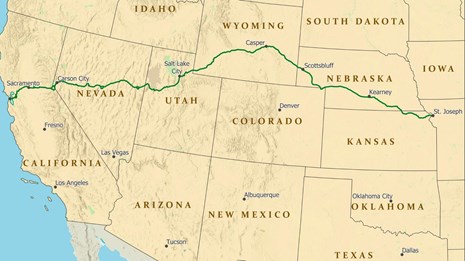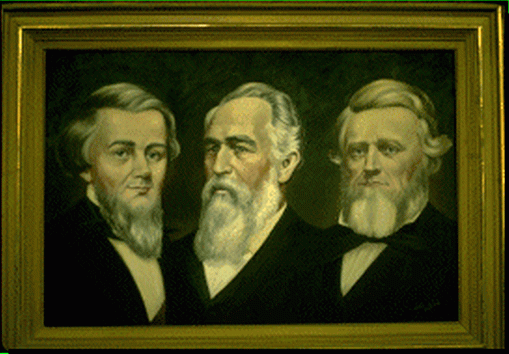The Pony Express
| HOME | OVERVIEW | PROFILES | INFLUENCE |
Overview of the Pony Express
In 1857, John Butterfield’s New York coach service won a senate contract to transport mail along the Southern, or Oxbow route. This was engineered by the crafty Postmaster General Aaron V. Brown, the ex-governor of Tennessee, who wanted to see the primary mail route, and a subsequent telegraph and rail route, be routed through the South. As factional tensions grew within the congress, Russell Majors and Waddell, the parent company of the Pony Express, started as a freight company between the Missouri River and Salt Lake City shipping government supplies before winning a mail contract and replaced Butterfield’s at its insolvency as an express mail. With all of this in place, the Pony Express was conceived between Russell Majors, a politically savy man, and a Californian Senator named William Gwin.
The venture was known from the start to be unprofitable, but because Russell had already agreed in the name of the company, they were forced to undertake the effort. The route was set across the 39th parallel in order to compete with the southern Oxbow route.

National Park service, cropped map

Russell, Majors, Waddell; Pioneer Pieces
Russell, Majors, and Waddell was already staving off bankruptcy at the creation of the Pony Express due to a refusal to fulfill a reimbursement promise made by congress to pay for damages incurred during the Utah War waged against rogue Mormons, combined with financial losses from the Pony Express (which made $500,000 and cost $700,000 and subsequently lost funding from Congress). After running out of credit, Russell decided to conspire with a relative of the wife of Secretary of War Floyd, who had backed Russell, Majors, and Waddell with his personal signature. Russell embezzled bonds three times from the Department of the Interior’s Indian Trust Fund, and was caught after the confession of his co-conspirator, but was released without trial due to the severe interruption of civil war.
That April, the Pony Express was handed over to Wells Fargo and Russell resigned as president of the company. Half of that is then turned over to Butterfield Overland in July.
The Pony Express ceased operations on the day the transcontinental telegraph was established on October 24th, 1861.